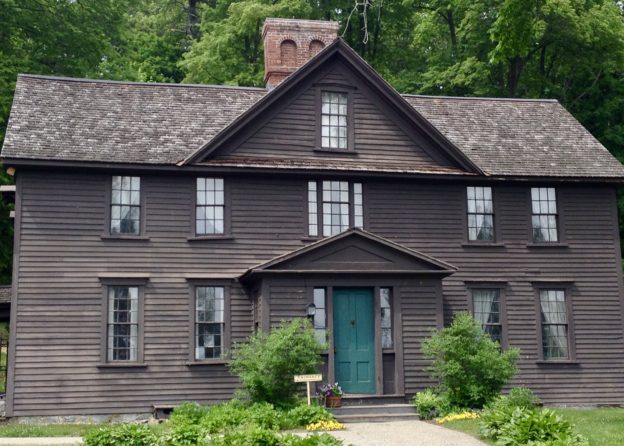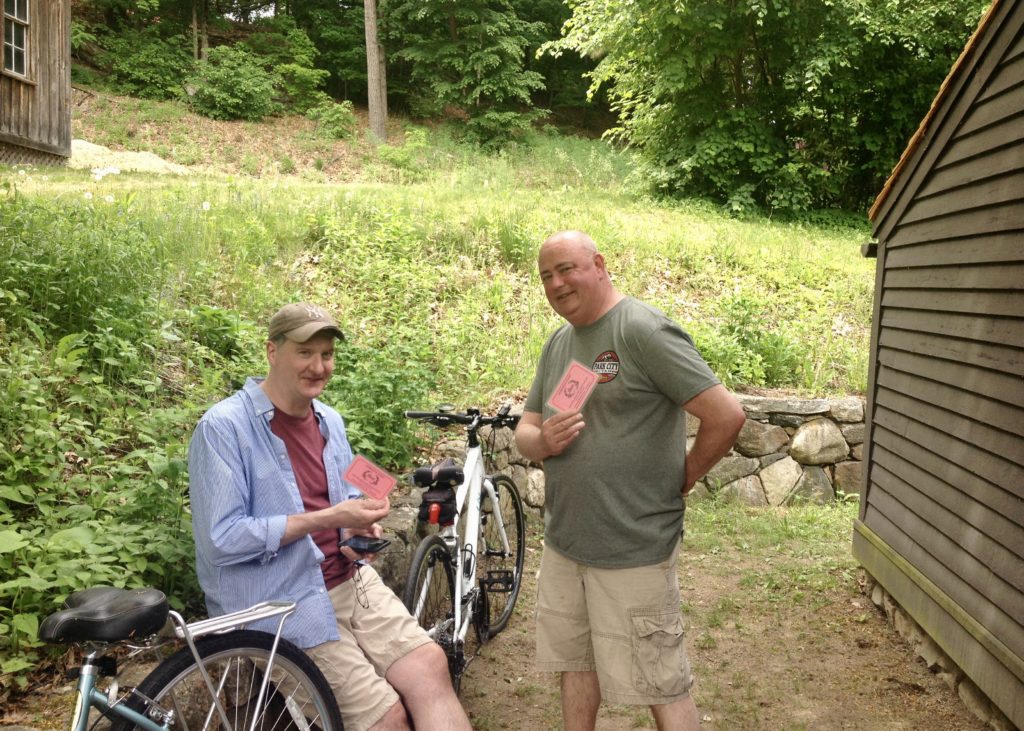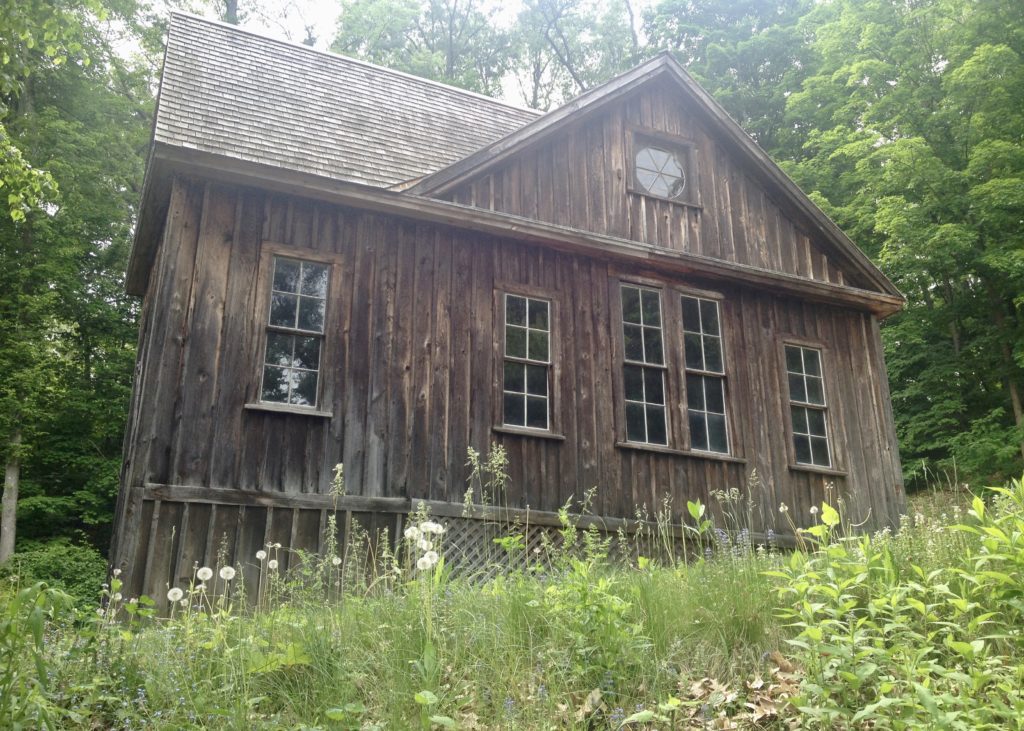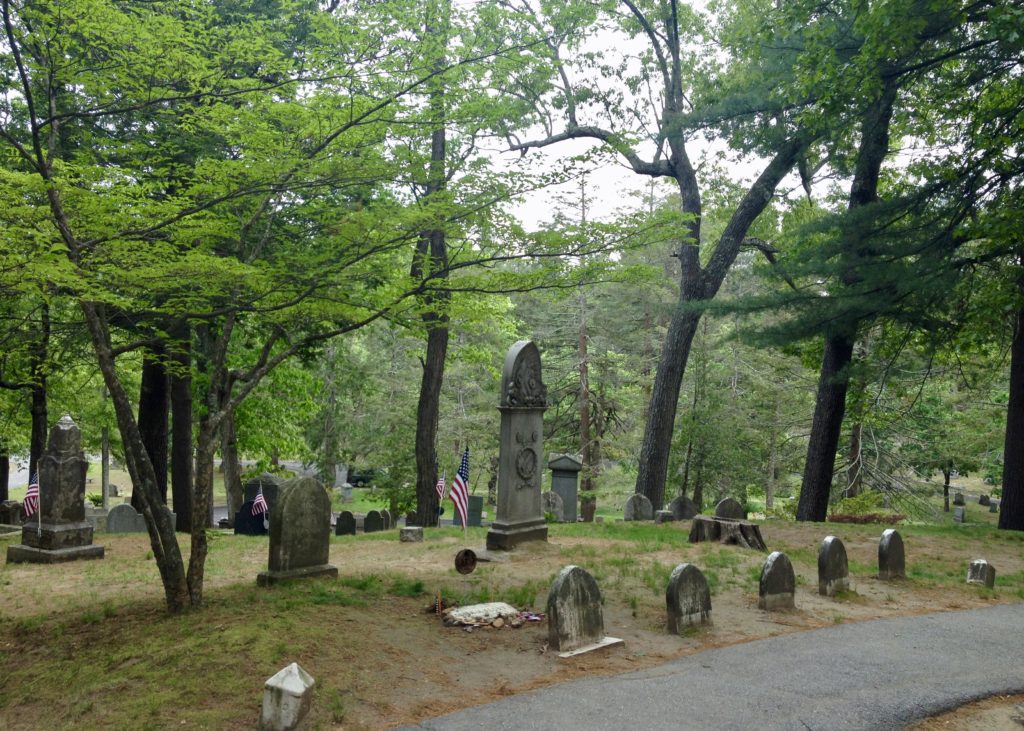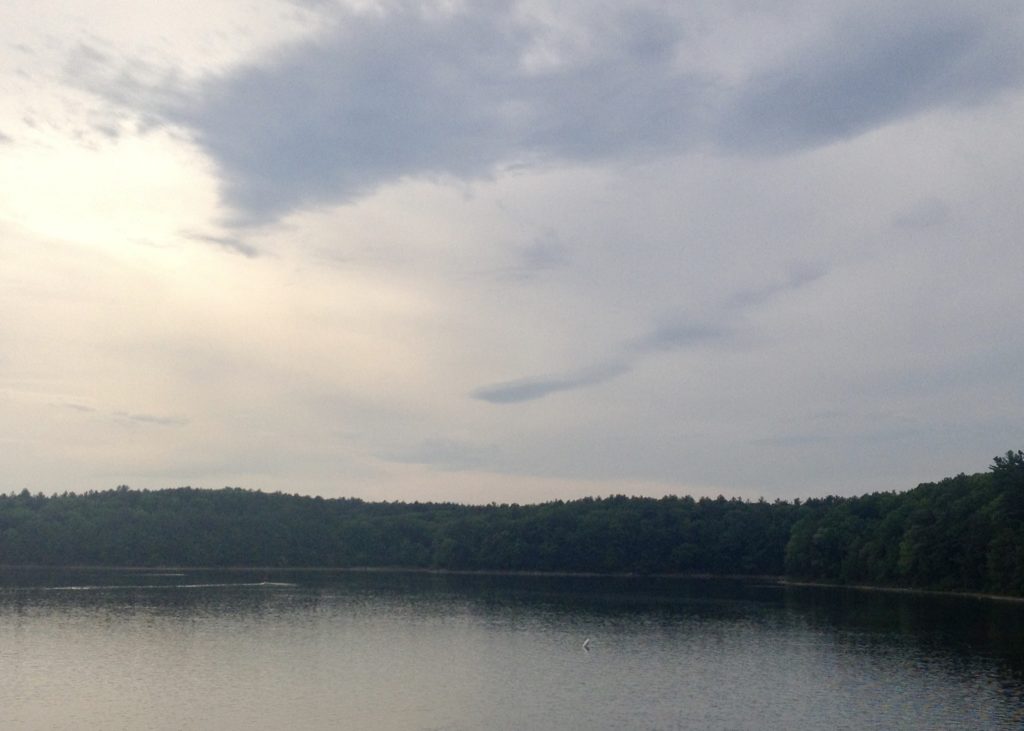by Wendy
Louisa May Alcott was one of my favorite writers as a child. Like many girls, I adored the novel Little Women and idolized the character Jo March. I read any book I could find by Alcott and then moved on to biographies about her fascinating life and family members.
Alcott was dethroned by other literary obsessions as I grew older, and I hadn’t thought about her much in recent years. Then I watched the new PBS Masterpiece adaptation of Little Women a few weeks before a Boston trip. A quick online search confirmed that Louisa May Alcott’s family home, “Orchard House”, is in nearby Concord and can be toured. I remembered wanting to go as a kid, and now I had the opportunity thanks to Jack and our pal Steve, eternal good sport, who was up for spending a Saturday afternoon chasing literary history.
Steve picked Jack and me up from our Boston hotel around noon and drove us all to Concord, about 30 minutes away. After a lunch of deli sandwiches and chips, we found Orchard House fairly quickly, not far from the main streets of shops and restaurants. I jumped out of the car to take photos and then headed straight to the gift store to purchase admission (a reasonable $10 apiece) before Jack and Steve could change their minds. Here they are with the pink tickets, awaiting our tour group.
When the tour kicked off with a 15 minute video on a smallish television in a crowded room, I will admit a moment of cynicism. It faded quickly. The film wasn’t bad, and the low-tech quality of the musuem was part of its charm. The tour is about 45 minutes, and no photography is allowed inside the house. It was warm in late May, even with a few modern-day fans positioned here and there. Our guide was thoughtful of the older guests in the group, offering folding chairs as we entered various rooms in case they preferred to sit down.
The guide told us that nearly 80% of the items inside the house were actually owned by the Alcotts. Louisa lived in the house from about 1858-1877 with her parents and three sisters – unfortunately a fourth sister, Elizabeth, passed away before the family moved in. All served as inspiration for the March family in Little Women. Louisa May Alcott was a successful writer, but even more so after the novel’s publication in two parts in 1868 and 1869.
The Alcotts were artistic and civic-minded. As abolitionists, they were contacts on the Underground Railroad. Louisa’s father, Bronson Alcott, was a teacher and member of the Transcendentalist movement. The “Hillside Chapel” is nearby, where he conducted meetings of the Concord School of Philosophy. The family socialized with writers Ralph Waldo Emerson, Henry David Thoreau and Nathaniel Hawthorne.
Our informative guide provided facts about both the house and the Alcotts’ history and seemed happy to answer questions. Some of the highlights of the tour included the family portraits, drawings on the walls by youngest sister May – as well as her paintings in frames, Louisa’s desk where she wrote Little Women, the trunkful of costumes the sisters would use for their drama performances, oldest sister Anna’s wedding dress (apparently displayed only during the month of May), the original well in the kitchen floor, and Bronson’s large study at the front of the house with its walls of books.
There was a rather sad photo of Bronson Alcott sitting outside with a sign offering an apple for a conversation. The guide said Hawthorne would often take a long detour around the property to avoid this. Steve, Jack and I thought that was funny. Yet Bronson seemed earnest in his endeavors. Even as wisecracking Louisa apparently referred to his beloved Orchard House as Apple Slump.
I thought the tour was fantastic. Jack and Steve confirmed that it was interesting even to two non-Louisa-May-Alcott-enthusiasts.
Afterwards we stopped at Sleepy Hollow Cemetery, where Emerson, Thoreau, Hawthorne and the Alcotts are buried. It was Memorial Day weekend, and Louisa’s grave was marked with a flag to designate her service as a nurse during the Civil War.
Finally, we concluded our literary tourism at Walden Pond, where Thoreau lived in a one room cabin in the woods, studied nature and wrote. I think it was $8 total for admission to the park. You can see a replica of Thoreau’s cabin here, as well as the beautiful pond surrounded by a shore full of people swimming, sunbathing and enjoying the day. We walked along the trail for awhile before heading back to the city.
It was so cool to see a destination I had dreamed of as a child, and a town so important to American literature, but the best thing about the weekend trip was the company of friends. Jack and I are appreciative of Steve and all our Boston pals for spending time with us, offering funny stories and interesting conversation – without the need for an apple bribe.
